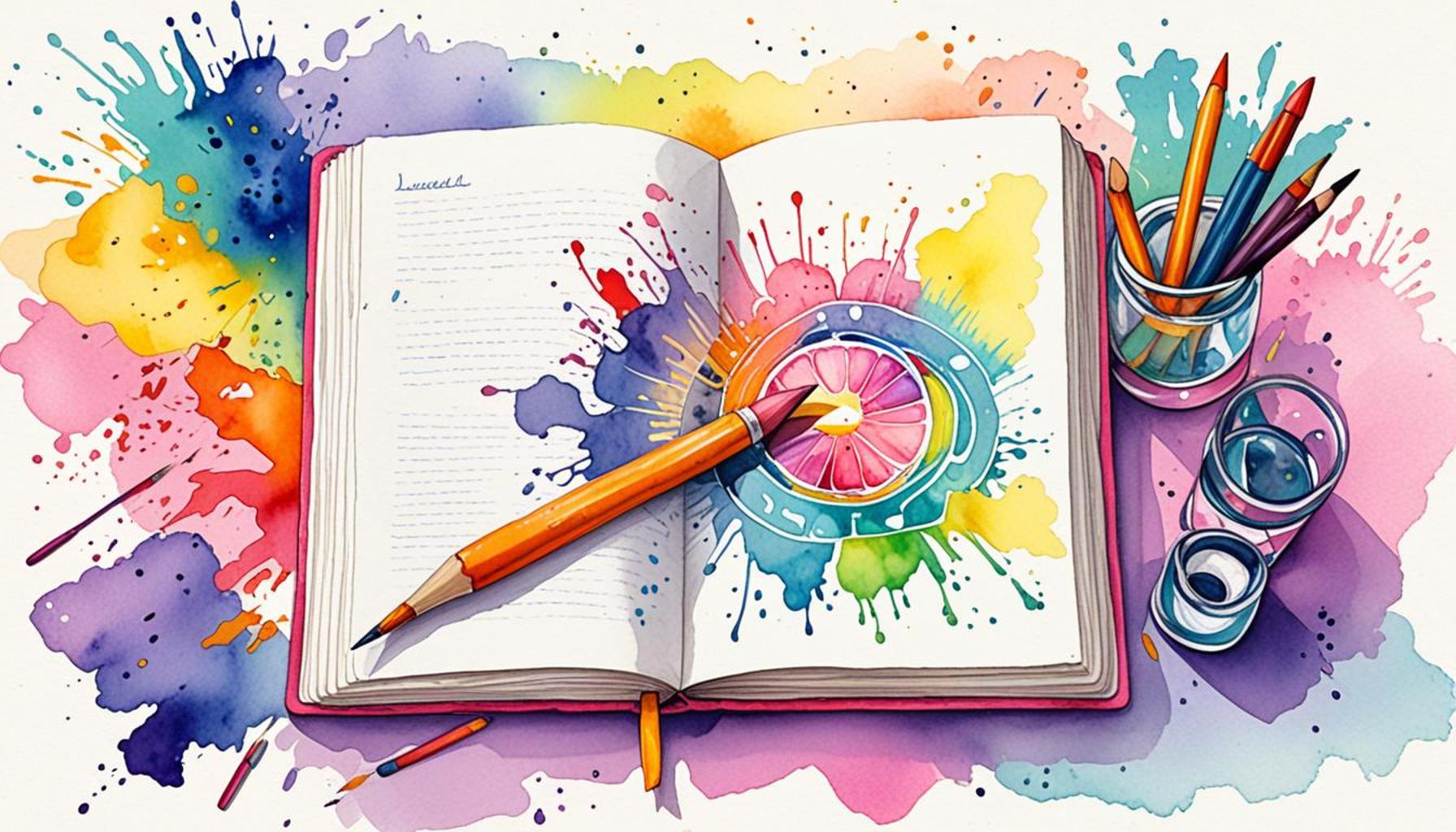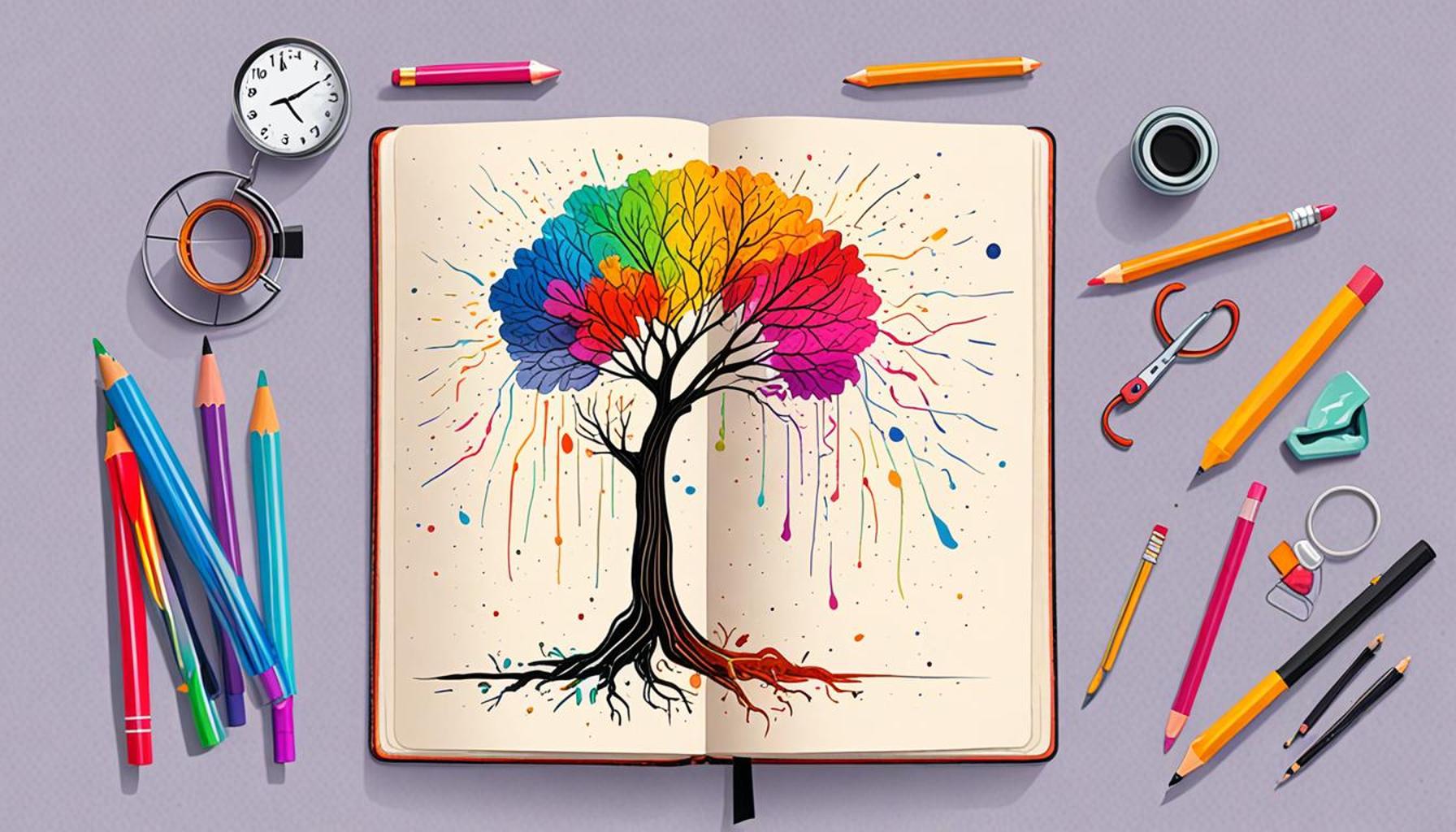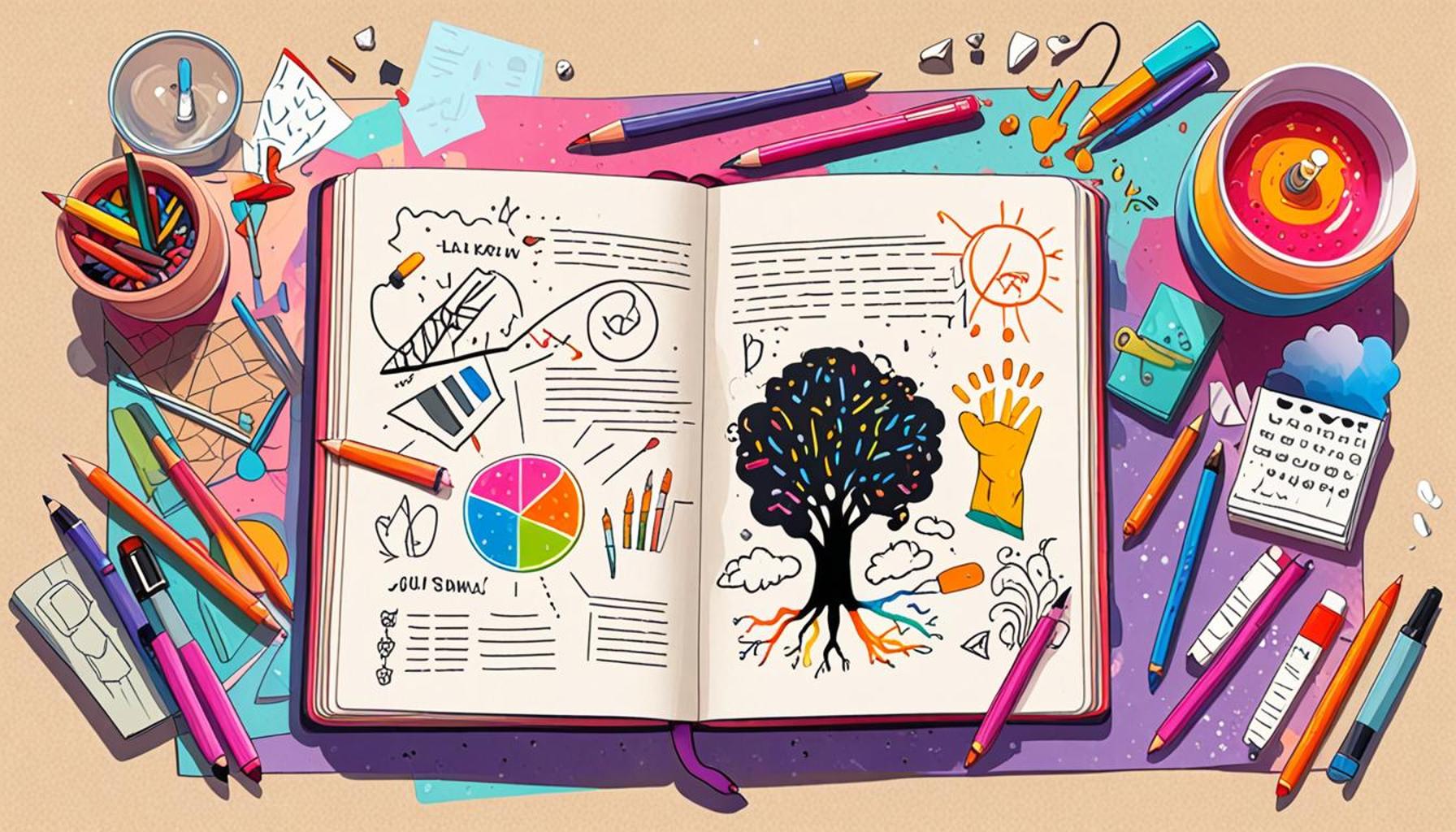Reflective Diary: An Approach to Learning Based on Personal Experiences
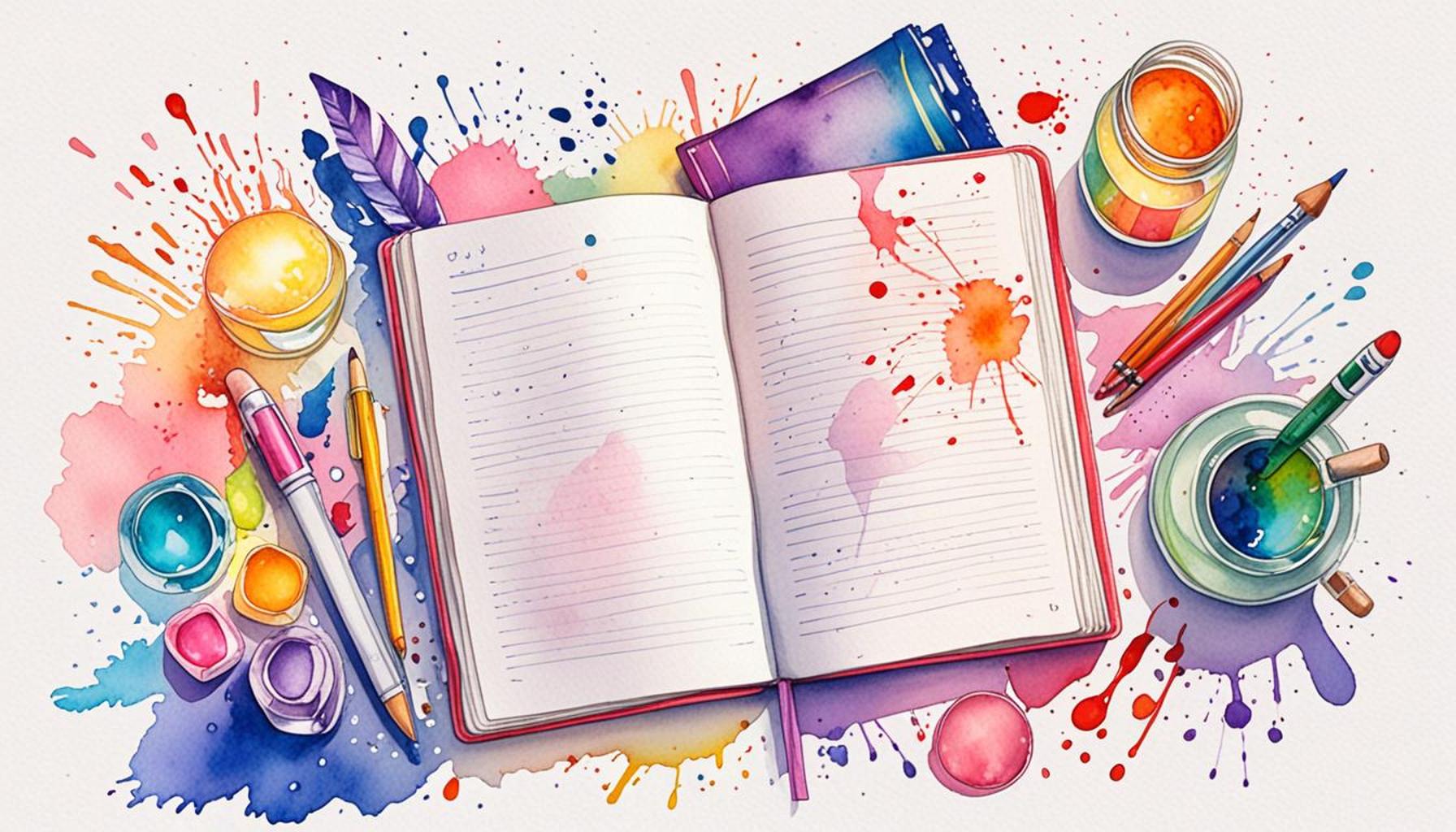
The Power of Reflective Practice
In a world that often prioritizes speed over depth, the art of reflection can seem outdated. Yet, it is precisely in reflection that individuals can unearth profound insights about themselves and their surroundings. One effective tool in this reflective journey is a reflective diary, which not only enables the documentation of experiences but also serves as a catalyst for transformation. By committing to this practice, individuals can cultivate a deeper understanding of their emotions, decisions, and actions, ultimately leading to significant personal and academic growth.
Using a reflective diary provides individuals with a structured method to:
- Document daily experiences and emotions: By regularly writing down thoughts and feelings, a reflective diary becomes a repository for personal history, allowing individuals to revisit moments that may hold deeper meaning.
- Analyze successes and challenges encountered: Reflecting on what went right or wrong can help individuals identify strengths to build on and weaknesses to address, fostering a growth mindset.
- Identify patterns in thoughts and behaviors: Recognizing recurring themes can illuminate aspects of one’s personality, guiding personal development.
For students in Nigeria, the importance of incorporating local context into their reflective practices cannot be overstated. The rich tapestry of Nigerian culture—including diverse traditions, languages, and societal challenges—provides a fertile ground for reflection. By engaging with their surroundings in their diary entries, students can explore issues such as educational accessibility, local governance, or the impact of climate change on their communities.
Furthermore, maintaining a reflective diary offers various tangible benefits that can significantly influence a student’s future:
- Improved problem-solving skills: Reflecting on past dilemmas equips individuals with better strategies for tackling new challenges.
- Greater emotional intelligence: By understanding their emotions and reactions, students can develop healthier relationships and effective communication skills.
- Enhanced creativity and innovation: Reflection can stimulate creative thinking, allowing students to approach problems from different angles and generate innovative solutions.
As learners document their thoughts, they go beyond mere recollection; they distill lessons from their experiences, creating a narrative that celebrates both victories and setbacks. This article will explore the profound significance of maintaining a reflective diary and its role in bridging the gap between theoretical knowledge and practical application. Prepare to uncover new dimensions of personal insight and academic enhancement!
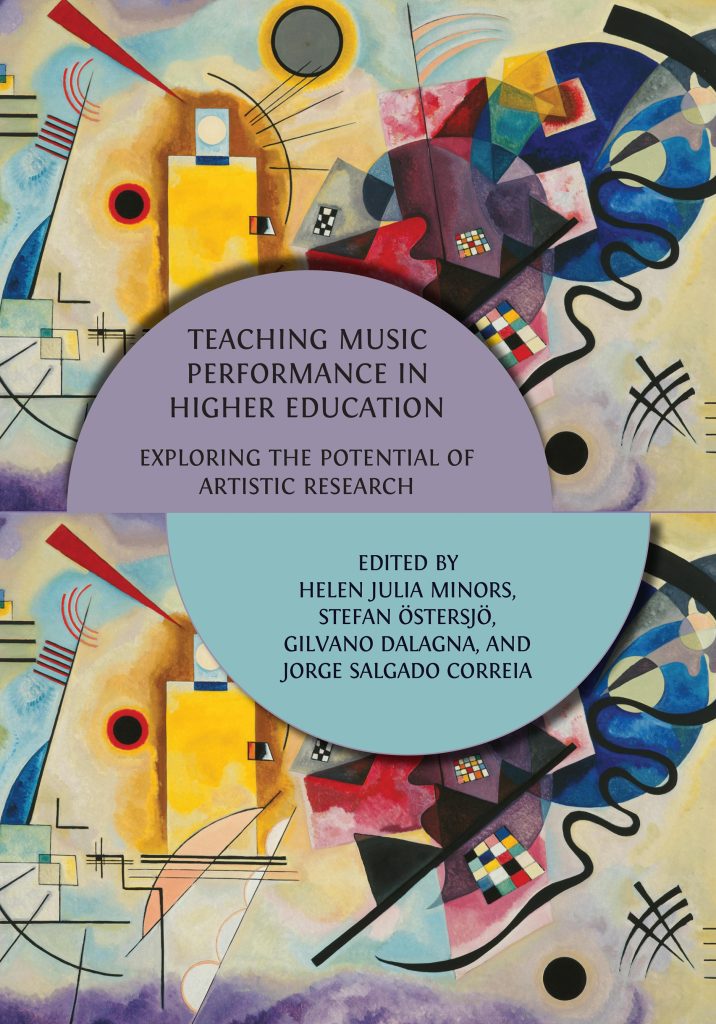
RECOMMENDED: Check out this similar article
Unlocking Insights Through Structured Reflection
The journey of personal growth can be likened to a winding road, filled with various experiences that shape our identities and perspectives. Embracing a reflective diary allows individuals to navigate this road with intention and awareness. By making a conscious effort to document thoughts and experiences, learners can derive meaningful insights from their daily lives, ultimately fostering a more profound connection between theoretical knowledge and practical application.
In the educational landscape of Nigeria, where diverse backgrounds and challenges converge, the practice of maintaining a reflective diary serves as a vital tool. It cultivates a sense of awareness that encourages students to critically engage with their environments. Here are several compelling ways that a reflective diary can enhance learning:
- Encouragement of Self-Discovery: By delving into their thoughts and feelings, students can uncover personal beliefs and biases that may influence their academic perspectives. For instance, reflecting on a group project’s dynamics can reveal insights about leadership styles and personal contributions, laying the groundwork for future interactions.
- Facilitation of Goal Setting: A reflective diary encourages students to articulate their aspirations. Documenting short-term and long-term goals empowers learners to track achievements and identify areas for improvement. This process can help students align their academic pursuits with their personal values, making education more meaningful.
- Connection to Cultural Context: In Nigeria, where cultural nuances play a vital role in daily life, reflective diaries can help students articulate and examine the impact of cultural identity on their learning experiences. Engaging with local narratives, traditions, and societal issues can provide fresh perspectives and deepen understanding of course materials.
- Promotion of Critical Thinking: Reflective writing challenges students to analyze and question their experiences critically. Instead of passively accepting information, learners can evaluate its relevance and applicability, honing their analytical skills through consistent reflection.
Maintaining a reflective diary does not only foster self-awareness but also nurtures resilience among students. When faced with challenges such as academic pressures or societal expectations, reflective journaling can serve as a therapeutic outlet, allowing learners to sort through their emotions and frustrations. In turn, this emotional processing can enhance academic performance and holistic well-being.
Additionally, the integration of reflective practices can significantly impact classroom interactions. Sharing reflections in a safe and constructive environment can promote a collaborative learning atmosphere where students learn from one another’s insights. This fosters a sense of community, as learners recognize that they share similar struggles and triumphs, despite their varying backgrounds.
Embracing the art of reflection through a diary is not merely about documenting experiences; it is about engaging with them on a deeper level. By fostering self-awareness, critical thinking, and resilience, reflective diaries hold the potential to transform the landscape of learning in Nigeria, providing students with essential tools to navigate their journeys both academically and personally.
| Category | Advantages |
|---|---|
| Personal Growth | Using a Reflective Diary cultivates self-awareness, allowing individuals to identify strengths and areas for improvement. |
| Enhanced Learning | Reflection encourages deeper processing of experiences, leading to improved memory retention and understanding of concepts. |
| Emotional Expression | A reflective practice offers a safe space for emotional exploration, decreasing stress and promoting mental well-being. |
| Critical Thinking | By analyzing past experiences, individuals develop critical thinking skills that enhance decision-making and problem-solving capabilities. |
Incorporating a Reflective Diary into daily routines can significantly shift one’s perspective on learning. This approach is not just beneficial for students; professionals across various fields are finding immense value in documenting personal experiences to foster professional development and emotional intelligence. As individuals embark on this journey, they can uncover insights that transform not only their academic or work performance but also their personal lives. The mere act of reflecting can spark new ideas, foster creativity, and encourage resilience in the face of life’s challenges. With the correct framework, the reflective diary can become a powerful tool, inviting users to engage more profoundly with their learning processes. By nurturing this habit, readers may discover paths to knowledge that are uniquely personal yet universally applicable.
SEE ALSO: Click here to read another article
Nurturing Emotional Intelligence Through Reflection
In today’s fast-paced world, cultivating emotional intelligence is paramount, and reflective diaries can serve as a catalyst in this area. Emotional intelligence encompasses self-awareness, self-regulation, empathy, and social skills, all of which are vital for personal and academic success. In the context of Nigerian education, where social interactions play a critical role, maintaining a reflective diary can enhance a student’s capacity to navigate their emotions and the emotions of others.
One of the most profound benefits of a reflective diary is its role in enhancing self-awareness. When students take time to reflect on their feelings, reactions, and interactions, they gain insight into their emotional responses. This is especially relevant in group settings, like project collaborations common in Nigerian universities. By documenting their thoughts on feedback received from peers, students can evaluate how they handle constructive criticism, paving the way for growth and improved relationships.
Moreover, this introspection encourages self-regulation—the ability to manage one’s emotions positively. For example, when faced with the stress of exams or the pressure of meeting deadlines, writing in a reflective diary can help students articulate their anxieties and work through them. As they express initial feelings of fear or inadequacy, they can also highlight coping strategies they’ve employed in the past, fostering resilience. This method not only mitigates the immediate effects of stress but also prepares students for future challenges by creating a personalized toolkit for emotional management.
Building on this, reflective diaries significantly contribute to nurturing empathy. As students document their experiences and feelings, they often encounter diverse perspectives and situations that challenge their views. Taking time to write about interactions with peers from different cultural or socioeconomic backgrounds can deepen their understanding and respect for diversity. This is particularly important in Nigeria’s rich tapestry of ethnicities, where the ability to appreciate varied worldviews can foster collaborative environments and diminish societal divides.
Furthermore, reflective writing cultivates stronger communication skills. As learners consistently articulate their thoughts and emotions, they develop clarity in expression. This skill becomes invaluable not just in academic contexts but also in professional settings. The ability to convey ideas succinctly and relate personal insights can make students more articulate during presentations, interviews, or collaborative tasks. Consequently, reflective diaries can lay the foundation for future professional success.
The impact of reflective diaries transcends individual benefits; it has the potential to transform educational practices across Nigeria. By integrating reflective writing into the curriculum, educators can tap into students’ collective experiences and insights. For instance, teachers could allocate time for sharing reflections within classrooms, creating spaces where students feel valued and connected. Such interactions foster an environment of mutual respect, ultimately enhancing the learning experience for everyone involved.
In summary, reflective diaries offer more than personal insights; they create a framework for understanding emotions, enhancing cultural awareness, and improving communication skills. Embracing this approach enables students in Nigeria to engage holistically with their educational experiences, ensuring that they emerge not only as knowledgeable individuals but as empathetic and emotionally intelligent members of society.
CHECK OUT: Click here to explore more
Conclusion: The Transformative Power of Reflective Diaries
In conclusion, the practice of maintaining a reflective diary offers a multifaceted approach to learning that resonates deeply within the Nigerian educational landscape. By promoting self-awareness, emotional regulation, and enhanced communication skills, reflective diaries do more than serve as personal journals; they create a blueprint for holistic development. Students learn to articulate their emotions and experiences, fostering a broader understanding of themselves and their interactions with others. This method cultivates not just academic success but nurtures emotional intelligence, an essential skill in today’s increasingly interconnected world.
Moreover, the implications extend beyond individual growth. As reflective practices become integrated into classroom dynamics, they can reshape the learning environment into one characterized by mutual respect and collaboration. Educators have an opportunity to harness students’ insights, using them to foster inclusive dialogues and enhance cultural awareness. In a country as diverse as Nigeria, where social cohesion is vital for progress, reflective diaries can become a tool for bridging gaps in understanding and cultivating empathy among students from various backgrounds.
The evidence is clear: adopting reflective diaries as a core element of education may encourage learners to navigate their academic journeys with resilience and insight, shaping them into not just knowledgeable individuals, but also socially conscious citizens. By embracing this approach, Nigerian education can move toward a more integrated and empathetic framework—one that prepares students to thrive both academically and in their wider communities. As we explore further the potential of reflective writing, it warrants attention from educators, policymakers, and learners alike to harness its transformative power effectively.
